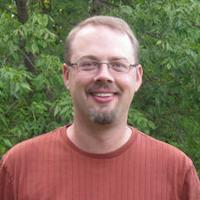research overview
- Professor Stenson is a member of the CMS Collaboration. CMS is one of two large general purpose detectors at the LHC at CERN in Geneva, Switzerland. The main goals of the experiment are measurement of the Higgs particle properties and searches for new physics such as supersymmetry. Professor Stenson was involved in the commissioning of two silicon forward pixel detectors for CMS. He was the co-convener of the CMS Tracking Physics Object Group in 2011 and 2012. He was instrumental in multiple improvements made to the track reconstruction code. His current interests are in searches for supersymmetry or other new physics in hadronic modes and searching for dark matter using a distinctive signature called emerging jets. He is also involved in studies of detector upgrades for the CMS detector. In particular, he is working on reconstructing tracks at the trigger level using FPGAs and using those tracks in physics objects that can be used to select events for offline analysis.

